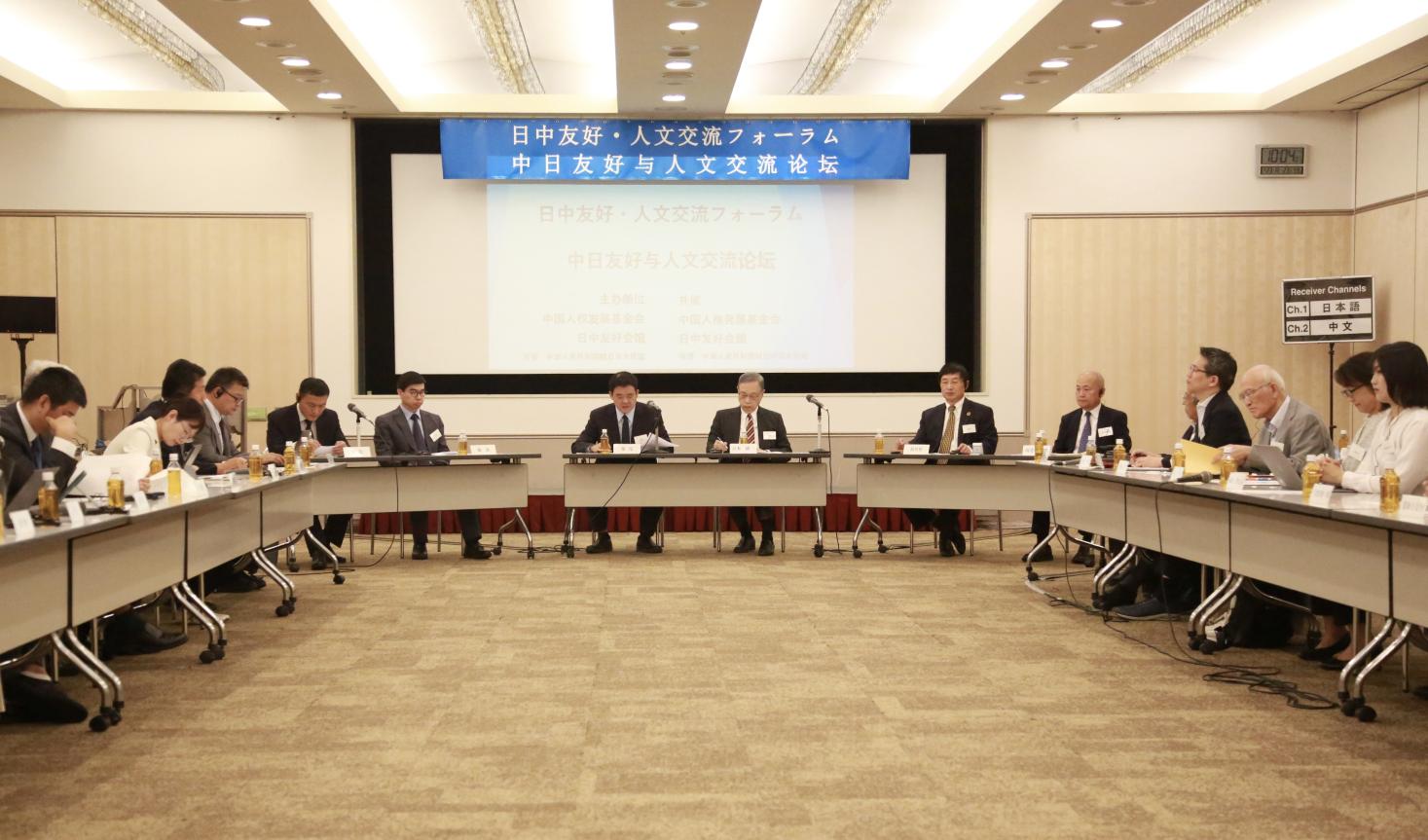
China and Japan should embrace the wisdom of unity in diversity, adopt a rational perspective on each other’s development, and explore avenues for future cooperation, said experts at a forum on Sino-Japanese friendship and people-to-people exchanges.
Held in Tokyo on Monday, the forum gathered nearly 60 experts from both countries. It was co-hosted by the China Foundation for Human Rights Development, or CFHRD, and the Japan-China Friendship Center, or JCFC.
Qin Liang, CFHRD’s deputy secretary-general, emphasized that a correct attitude toward history has always been an important political foundation for the development of China-Japan relations.
READ MORE: China, Japan mark 45th anniversary of friendship treaty
Both sides should adhere to the principle of learning from history while looking toward the future, approaching the development of bilateral relations from a broader perspective. This requires respecting and reflecting on history, handling historical issues prudently and carefully, and sending a positive message to the world about facing history head-on, said Qin.
Urging the two countries to pursue mutual cooperation, he noted that China and Japan are important neighbors with extensive common interests and shared concerns. Only by truly embedding the political consensus of cooperation and not posing a threat to each other into bilateral exchanges can both nations achieve mutual development and prosperity, ultimately benefiting their people, Qin added.
He urged both countries to consistently strive toward shared goals, which includes deepening practical cooperation in various fields and continually fostering mutual interests and understanding between their peoples.
Yuji Miyamoto, JCFC president, said there is no alternative to peace, friendship, and cooperation for China and Japan, as these are in the fundamental interests of both nations.
He pointed out that the current state of academic exchanges between the two countries is lacking, with many young people unable to participate in such interactions.
Miyamoto emphasized the need for Japanese society to develop a proper understanding of Chinese society, starting with researchers. Once the latter gain an accurate understanding of China, this knowledge can then be shared more broadly across Japanese society.
“Our task under the current circumstances is to establish the relationship between Japan and China on the foundation of peace, friendship, and cooperation, and to discuss how to further develop it. To achieve this, intellectuals from both sides should collaborate with each other,” said Miyamoto.
He emphasized that intellectuals should never focus solely on their own positions, thinking that the other side is wrong.
“We must start by considering issues from the other’s standpoint, and if there are things we don’t understand, we should actively ask questions to deepen our understanding. Only then can we explore the direction in which Japan and China can cooperate in the future,” Miyamoto said.
Last year, the leaders of China and Japan reaffirmed the positioning of comprehensively advancing the strategic and mutually beneficial relations between the two countries, and reached an important consensus on jointly building a constructive and stable relationship that meets the demands of the new era.
Shi Yong, charge d’affaires ad interim at the Chinese Embassy in Japan, emphasized the need for both countries to follow this important consensus.
READ MORE: China urges Japan to jointly build relationship in new era
He noted that alongside managing conflicts and differences, both nations should focus on strengthening cultural and people-to-people exchanges to foster mutual understanding and trust. This, he said, would provide essential support for sustaining China-Japan friendship and reinforce public opinion as a key foundation for the future development of bilateral relations.
Tomoki Kamo, dean of the Faculty of Policy Management at Keio University, noted that since the normalization of diplomatic relations between Japan and China in 1972, the two countries have confirmed their shared interests and values, and established a stable bilateral relationship.
“Now, Japan and China are at a stage where they need to reaffirm their common interests and values,” said Kamo. There is a need to increase channels for communicating national intentions between the two governments, as well as between the private sectors, he added.
Contact the writer at jiangxueqing@chinadaily.com.cn


